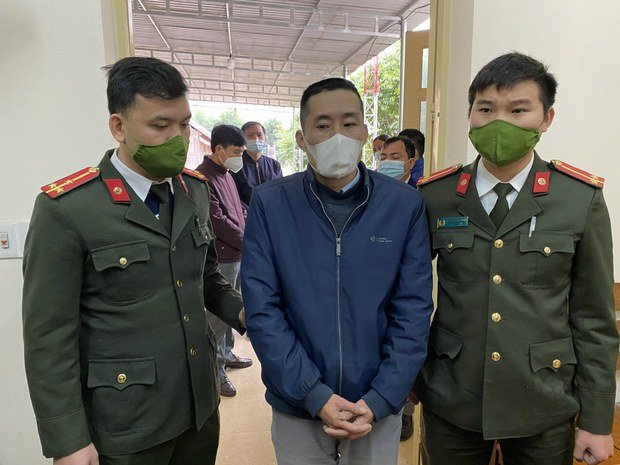
The U.S.-based Committee to Protect Journalists (CPJ), which promotes press freedom, has called on Vietnam to release journalist Le Manh Ha and other journalists.
The CPJ issued the appeal on Oct. 26, a day after the People"s Court of Tuyen Quang province sentenced freelance journalist to eight years in prison and five years of probation on charges of “making, possessing, disseminating or propagating information, documents and items aimed at opposing the State of the Socialist Republic of Vietnam.”
In a press release posted on the CPJ"s website, Shawn Crispin, the organization"s senior representative in Southeast Asia, called for the release of the journalist and others imprisoned for publishing their views.
“Vietnam must stop equating independent journalism with criminal conduct and release all journalists they wrongly hold behind bars,” he said.
Vietnam’s one-party regime detained 23 journalists at the beginning of December last year, according to the CPJ. Since then, eight more have been arrested on charges of opposing the State of Vietnam.
Vietnam mirrors China’s treatment of journalists
Speaking to RFA, Crispin said Vietnam’s repression closely mirrors China’s and, on a per capita basis, the county has now jailed more reporters than China.
“Vietnam is one of the most repressive places in Asia for citizen journalism, witnessed by a large number of reporters now languishing behind bars,” he said.
“The one -party communist regime uses many vague laws to silence journalists in order to prevent any news that it deems critical of the government, party, and state.
“The abuse of those laws makes it nearly impossible for independent journalists to report on topics of public interest, including the environment, politics and human rights.”
Crispin said democratic countries should force Vietnam to change and focus on freedom of the press before providing aid to Hanoi.
Commenting on the outcome of the trial, former officer of the General Department of Military Intelligence Vu Minh Tri told RFA the Party and State see journalists such as Ha as a genuine threat to their power.
“People like Le Manh Ha, Nguyen Lan Thang…. were the sparks that started the big sparks in the struggle for freedom and human rights that could burn down the totalitarian dictatorship, so it"s not surprising that they were condemned so severely."
However, according to Tri, the heavy sentence proves that the government is scared and exhausted.
“The more the people "s freedoms are suppressed, including the right to freedom of speech, the more it shows the fear of the government and the end of the global dictatorship. The cure is drawing near.”
Imposing heavy sentences on activists does not scare people as much as the authorities want, but on the contrary makes more people unhappy, the former military officer said.
Tri expressed his admiration for the commitment of freelance journalists and activists such as Le Manh Ha, Nguyen Lan Thang and Tran Huynh Duy saying they have not been brought down by the prison regime, rather it has made them stronger.
Le Manh Ha learned the law to defend his family’s land rights claim after the construction of a dam forced his family to relocate with very little compensation.
He used social networks such as Facebook and YouTube to disseminate legal knowledge and speak out against social injustices. He also handed out copies of the Vietnamese Constitution to people in Tuyen Quang, where the dam was built.
He was arrested in mid-January 2021 on charges of "conducting propaganda against the state," one of the more commonly used laws. to silence objections.
During a two-day trial earlier this week, he was sentenced in a manner his lawyer said did not adhere to the standards of a fair trial.
The lawyer said the verdict was based on an indictment built on the subjective views of the assessor of the Department of Information and Communications, who was absent from the trial.
He said the representative of procuracy did not dare to argue with lawyers while the court panel paid little attention to Ha’s defense.
